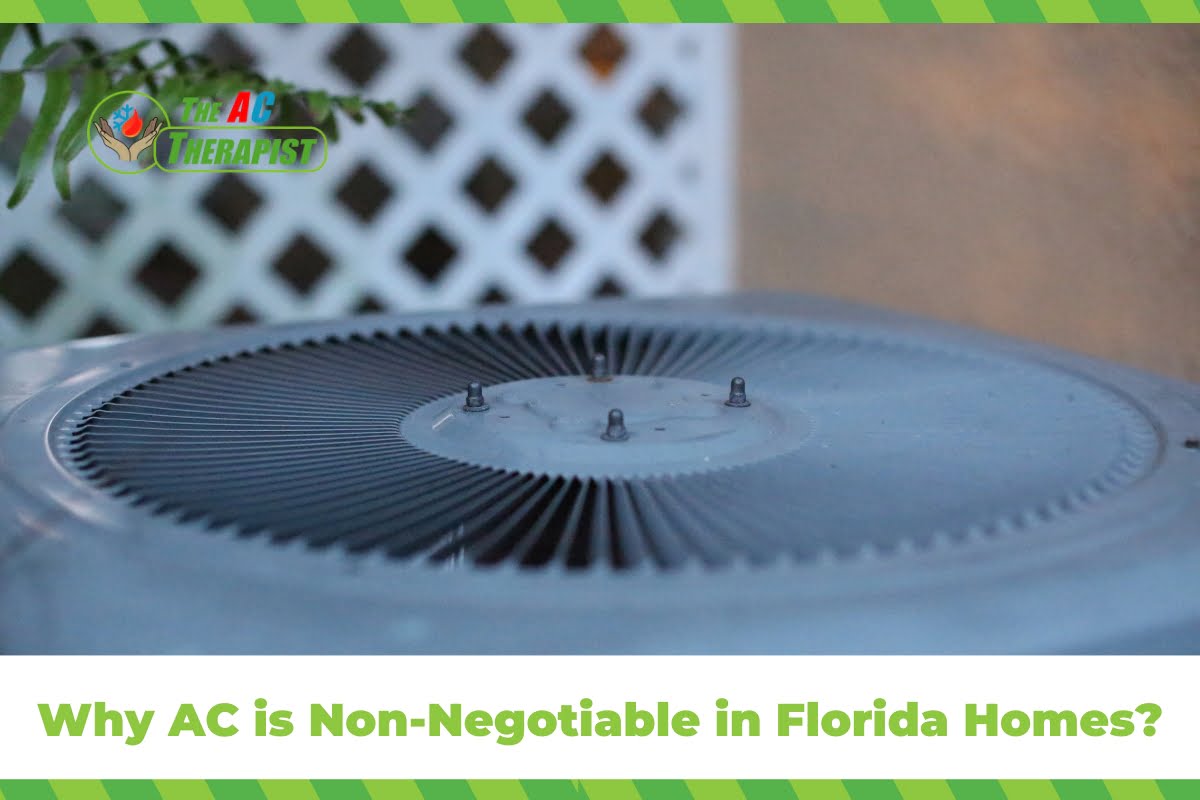Why AC is Non-Negotiable in Florida Homes?
Living in Florida offers a unique blend of sunny skies, beautiful beaches, and vibrant culture. However, the state’s subtropical climate also brings sweltering heat and high humidity, making air conditioning not just a luxury, but a necessity. In this blog, we’ll explore why AC is non-negotiable in Florida homes.
1. Intense Heat and Humidity: A Daily Reality
Living in Florida, residents quickly become accustomed to the state’s defining climatic features: intense heat and high humidity. This combination is not just a seasonal occurrence but a daily reality for a significant part of the year. Understanding the impact of this climate on daily life and health is crucial for Floridians.
The Heat Factor
Florida’s geographical location, surrounded by the Gulf of Mexico and the Atlantic Ocean, contributes to its subtropical climate. Summers are long and hot, with temperatures frequently climbing above 90°F. In cities like Tampa, Orlando, and Miami, these high temperatures are a staple of daily life from late spring through early fall.
The heat in Florida is not just about high temperatures; it’s also about the duration of the heat. The state experiences a greater number of hot days compared to many other parts of the United States. This prolonged exposure to heat can have cumulative effects on people’s health and homes.
Humidity: The Invisible Challenge
Humidity is the amount of water vapor in the air, and in Florida, it’s often high. This high humidity exacerbates the feeling of heat. The human body cools itself through sweating, but when the air is full of moisture, sweat doesn’t evaporate as quickly. This inefficiency in natural body cooling can lead to a feeling of stickiness and discomfort, and more seriously, it can impede the body’s ability to regulate its temperature, potentially leading to heat-related illnesses.
Impact on Daily Life
The combination of heat and humidity affects various aspects of daily life in Florida:
- Health Risks: High temperatures and humidity can lead to heat exhaustion, heatstroke, and dehydration, especially among vulnerable populations like the elderly, children, and those with certain health conditions.
- Air Quality: Humid conditions can also impact indoor air quality. Moist environments are conducive to the growth of mold and mildew, which can have health implications, particularly for those with allergies or respiratory issues.
- Comfort and Productivity: These conditions can make basic daily activities uncomfortable and hinder productivity. It’s harder to sleep, work, or even relax in a hot and humid environment.
- Home Maintenance: High humidity can also affect the integrity of buildings and personal belongings. It can cause warping in wood, damage electronic devices, and deteriorate other materials.
The Role of Air Conditioning
In this context, air conditioning becomes more than a luxury; it’s a critical tool for making homes and buildings livable. Air conditioning systems do more than cool the air; they also reduce humidity levels, making indoor environments comfortable and safe. This is why in places like Tampa Bay and the wider Florida area, a reliable air conditioning system is considered essential.
For homeowners and residents, understanding the importance of maintaining an efficient and effective air conditioning system is key. Regular maintenance, timely repairs, and choosing the right system for your space can make a significant difference in your quality of life in Florida’s challenging climate.
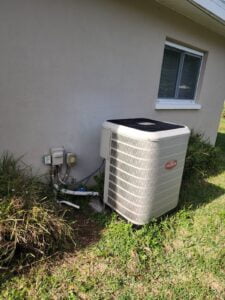
2. Health and Safety Concerns
Heat-related illnesses are a serious concern in Florida. Vulnerable populations, such as the elderly, children, and those with certain medical conditions, are particularly at risk. Air conditioner units help maintain a safe indoor temperature, reducing the risk of heat exhaustion and heat stroke.
3. Improved Air Quality
Florida’s humid environment can encourage the growth of mold and mildew, which can lead to poor indoor air quality. Modern air conditioning systems are equipped with filters that trap dust, pollen, and other allergens, improving the air quality inside your home. This is especially important for individuals with allergies or respiratory issues.
4. Protecting Your Home and Belongings
In Florida’s hot and humid climate, air conditioning does more than provide comfort; it plays a crucial role in protecting your home and belongings. High temperatures and humidity can be damaging to various aspects of your house and personal items. Understanding how your air conditioning system contributes to protecting these assets is essential.
1. Preventing Moisture Damage
One of the primary ways an air conditioning system protects your home is by controlling humidity levels. Excess moisture in the air can lead to a host of problems, including:
- Mold and Mildew Growth: These can develop on walls, ceilings, and other surfaces, leading to health issues and structural damage.
- Wooden Structure Warping: Excessive humidity can cause wooden structures and furniture to warp, crack, or rot.
- Damage to Electronics: Humidity can corrode and damage electronic components, shortening the lifespan of these devices.
By maintaining a consistent and moderate humidity level, your air conditioning system helps prevent these issues.
2. Preserving Indoor Air Quality
Air conditioning systems, especially those with quality air filters, play a significant role in maintaining good indoor air quality. They reduce the presence of airborne pollutants such as dust, pollen, and other allergens. This is particularly important for individuals with allergies or respiratory issues.
3. Protecting Artwork and Sensitive Materials
Artwork, photographs, and other sensitive materials are susceptible to damage from high humidity. Moisture can cause paper to buckle and inks to run, while high heat can fade colors. By controlling the indoor climate, air conditioning systems help preserve the integrity of these items.
4. Enhancing Comfort and Safety
Beyond physical belongings, the comfort and safety of your home’s inhabitants are paramount. High temperatures can be particularly dangerous for young children, the elderly, and pets. An efficient air conditioning system ensures a safe and comfortable living environment for everyone.
5. Reducing Pest Infestations
Pests like termites and cockroaches are attracted to moist environments. By reducing humidity, air conditioning can help deter these pests from infesting your home.
6. Protecting Musical Instruments
Musical instruments, particularly those made of wood, are sensitive to changes in temperature and humidity. An air conditioning system helps maintain a stable environment, essential for the preservation of these valuable items.
7. Ensuring Efficiency of Appliances
Other home appliances, including refrigerators and computers, operate more efficiently in a controlled climate. Excessive heat can strain these appliances, leading to higher energy consumption and potential malfunctions.
8. Long-Term Structural Integrity
Over time, the effects of heat and humidity can compromise the structural integrity of your home. Consistent use of air conditioning can mitigate these long-term effects, helping to maintain the value and safety of your property.
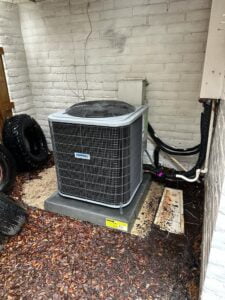
5. Better Sleep Quality
Sleeping in a hot, sticky environment can be challenging. Cooler temperatures are conducive to better sleep; an air conditioning system can provide the ideal sleeping environment. This is not just a comfort issue; quality sleep is essential for good health.
6. Increased Productivity and Comfort
It’s difficult to focus or relax in a hot environment. Air conditioning systems create a comfortable atmosphere that enhances productivity and overall well-being. Whether you’re working from home or relaxing after a long day, a cool environment can make a significant difference.
7. Resale Value and Attractiveness of Your Home
In Florida, homes without air conditioners are less attractive to potential buyers. An efficient and well-maintained air conditioning system can increase the resale value of your property and is often a key selling point in this region.
8. The Impact of Climate Change
As global temperatures rise, heatwaves are becoming more frequent and intense. This trend makes air conditioning an even more critical component of living safely and comfortably in Florida.
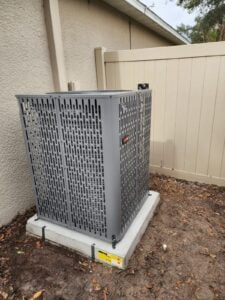
9. Controlling Humidity for Health and Comfort
High humidity not only feels uncomfortable but can also exacerbate health issues like asthma and allergies. air conditioning systems help maintain a consistent and comfortable humidity level in your home.
10. Energy-Efficient Options and Sustainability
Today’s air conditioning units are more energy-efficient than ever, offering eco-friendly options for homeowners. Investing in a modern, energy-efficient air conditioning system can reduce your carbon footprint while keeping your home comfortable.
11. Customizable Comfort with Modern Technology
Modern air conditioning systems offer advanced features like smart thermostats and zoning capabilities. These technologies allow for customized comfort settings in different areas of your home, enhancing efficiency and personal comfort.
12. The Role of Air Conditioners in Florida’s Lifestyle
Air conditioning plays a significant role in the lifestyle of Floridians. It enables residents to enjoy their homes year-round, despite the extreme outdoor temperatures.
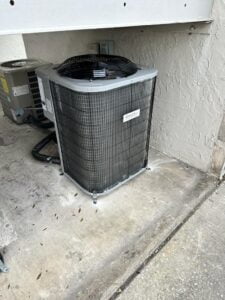
13. Preventing Pest Infestations
In Florida, where the climate is warm and humid, pest infestations can be a common problem in homes. However, a well-maintained air conditioning system can play a significant role in preventing these infestations. Here’s how proper air conditioner use and maintenance can help keep pests at bay.
1. Reducing Humidity Levels
Many pests, including cockroaches, termites, and ants, thrive in humid environments. High humidity levels in your home can create ideal breeding grounds for these pests. An AC system reduces indoor humidity, making your home less inviting to moisture-loving pests. By maintaining a drier atmosphere, you can discourage pests from settling in.
2. Sealing Entry Points
When installing and maintaining air conditioning systems, it’s crucial to ensure that there are no gaps or unsealed areas where pests can enter. This includes checking the seals around window units and ensuring that central air systems are properly sealed and vented. Regular maintenance checks can identify and rectify any potential entry points for pests.
3. Improving Air Circulation
Good air circulation is another factor that can deter pests. Stagnant, humid air is an ideal environment for pests like dust mites. An air conditioning system helps circulate and filter the air, which can disrupt the living conditions that these pests prefer.
4. Lowering Indoor Temperatures
Some pests are attracted to warm environments. By keeping your home cool, an air conditioning system can make it less attractive to these types of pests. This is particularly relevant in the hot Florida summers when the difference between outdoor and indoor temperatures can be quite significant.
5. Reducing Mold and Mildew
Mold and mildew not only pose health risks but can also attract pests that feed on these fungi. By controlling humidity, air conditioning systems help prevent the growth of mold and mildew, thereby reducing the likelihood of attracting pests that feed on these substances.
6. Direct Impact on Insect Life Cycles
Certain pests, like mosquitoes, have life cycles that are influenced by temperature and humidity. Air conditioning can disrupt these cycles, particularly by affecting humidity levels, which are crucial for the development of mosquito larvae.
7. Creating Unfavorable Breeding Conditions
Many pests seek out warm, moist areas to lay their eggs. By keeping your home cool and dry, an AC system can create an environment that is less conducive to pest breeding.
8. Complementary Pest Control Strategy
While air conditioning is an effective tool in pest prevention, it should be part of a broader pest control strategy. This includes regular cleaning, proper food storage, and addressing any water leaks or moisture issues in your home.
14. Supporting Indoor Activities
Whether it’s cooking, exercising, or engaging in hobbies, doing these activities in a cool environment makes them more enjoyable and manageable, especially during the hot Florida summers.
Air Conditioner Maintenance: Ensuring Efficiency and Longevity
Proper maintenance of your air conditioning system is crucial, especially in regions like Florida where the unit works hard almost year-round due to the hot and humid climate. Regular maintenance not only ensures that your air conditioner runs efficiently but also extends its lifespan, improves air quality, and can prevent costly repairs down the line. Here’s a comprehensive guide to maintaining your air conditioner.
1. Regular Filter Changes
One of the simplest yet most effective maintenance tasks is changing or cleaning the air conditioner filters. Dirty filters restrict airflow and reduce the system’s efficiency. In a typical residential setting, it’s recommended to change or clean filters every 30-60 days, especially during peak usage months.
2. Cleaning Coils and Fins
The air conditioner evaporator and condenser coils collect dirt over time. This dirt reduces airflow and insulates the coil, hindering its ability to absorb heat. Outdoor condenser coils can also become very dirty if the outdoor environment is dusty or if there is foliage nearby. The aluminum fins on these coils can also bend and block airflow. Using a “fin comb,” these fins can be brought back to near-original condition.
3. Checking the Thermostat
Ensure your thermostat is working correctly and keeping your home at the right temperature. If you have an older, mechanical type thermostat, consider upgrading to a programmable model. This allows you to set the temperature higher when nobody is home and cool down the house before you return, saving energy and reducing strain on the air conditioner.
4. Inspecting the Condensate Drain
Over time, the AC’s condensate drain can become clogged, which can cause water damage in the house, increase humidity levels, and potentially lead to mold or bacteria growth. Regularly checking and clearing this drain is an important part of air conditioner maintenance.
5. Professional Inspections
While many aspects of air conditioner maintenance can be DIY, it’s advisable to have a professional technician inspect your system annually. They can handle complex tasks like checking the refrigerant level, testing for refrigerant leaks, inspecting the ductwork for potential energy losses, and checking the system’s thermostat accuracy.
6. Preparing for Off-Season
In areas with a cooler off-season, it’s important to prepare your air conditioner for a period of non-use. This might include cleaning and covering the outdoor unit to protect it from winter weather and debris.
7. Energy Efficiency Checks
Regular maintenance also involves ensuring that your air conditioner unit is operating as efficiently as possible. This includes checking for duct leakage, ensuring that the area around the outdoor unit is clear of debris, and considering the installation of energy-efficient upgrades like smart thermostats.
8. Addressing Noises or Odd Sounds Promptly
If your air conditioner starts making unusual noises, it’s important to address these signs promptly. Sounds like rattling or buzzing can indicate a loose part, while whistling or grinding noises can signal something more serious.
9. Keeping the Area Around the Unit Clear
Ensure the outdoor unit has enough clearance around it for adequate airflow. Keep plants, shrubs, and other potential obstructions at least 2-3 feet away from the unit.
10. Updating Older Systems
If your air conditioning system is old and frequently needs repairs, it might be more cost-effective to replace it with a newer, more energy-efficient model. Newer models are more efficient, which means they use less energy to cool your home, reducing your utility bills.
The Essential Comfort: Why AC is Non-Negotiable in Florida Homes
The necessity of air conditioning in Florida homes cannot be overstated. The unique climatic challenges of intense heat and humidity in the Sunshine State make air conditioning systems not just a luxury, but an essential component for maintaining a comfortable, healthy, and safe living environment. From protecting your home and belongings against moisture damage to ensuring good air quality and preventing pest infestations, the benefits of a well-functioning air conditioning system are manifold.
As we’ve explored in this blog, the role of air conditioning extends beyond mere temperature control; it is integral to the very lifestyle and well-being of Floridians. Remember, regular maintenance and timely servicing of your air conditioner unit are crucial for its efficient operation. This is where The AC Therapist steps in – your trusted local HVAC contractor in the Tampa Bay area. With our expertise in air conditioner repair, installation, and maintenance, we are committed to ensuring that your home remains a cool, comfortable oasis in Florida’s tropical climate. Trust The AC Therapist to keep your air conditioning system running smoothly, because in Florida, a reliable air conditioner is not just a choice; it’s a necessity.

